Fleming Rutledge, Advent: The Once & Future Coming of Jesus Christ
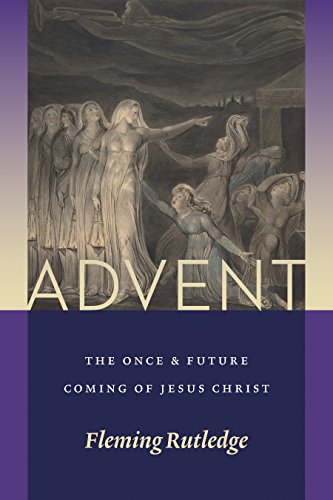
(Grand Rapids, MI: Eerdmans, 2018), 406 pages including Biblical references
A few weeks before Advent this year, I began reading this collection of essays and sermons. However, I quickly learned I was already behind the curve. For Rutledge, the Advent themes begin on All Saints Day adding another four weeks to the season we generally think of as the four Sundays of preparation for Jesus’ birth.
The Christian year begins with Advent, but her sermons include the end of the old Christian year and the beginning of the new. This is the season of judgment, the return of Jesus, the end of the age, the need to be ready, to repent, to wait patiently. In writing about Advent and with a host of sermons that she preached during this season of the year, Rutledge reminds us that we’re not as good as we think we are and our need to depend on God. Her sermons are filled with reminders that evil is real and there a real battle going on in both the world and our lives. She warns against a Christianity that thinks we must make the right decision (accept Jesus) and not have to deal with the reality that there is an enemy of God, Satan. Her sermons are a call to action.
Sermons that tie into what’s happening in the world
Karl Barth is often quoted as saying we are to preach with the Bible in one hand and the newspaper in the other. Rutledge, a student of Barth (along with Calvin and others), displays this wisdom. These sermons, delivered from the mid-70s through the first decade of the 21st Century, display keen insights into the events of the world: terrorist attacks, Rwandan genocide, the Gulf War, the Iraqi War, the Bush/Gore election, school shootings, Emmanuel AME shootings among others. I have never had the skill or maybe I lacked the boldness to directly include such topics in my sermons, often choosing to address them in prayers. The sermons are pastoral. Imagine preaching an ordination sermon the weekend after the Sandy Hook school shooting in a neighboring town. She handles the scripture, the charge to the pastor, and addresses the situation with grace.
Rutledge is a master wordsmith
Rutledge is well read, both in the discipline of theology as well in literature. Her sermons are steeped in scripture, which allows her to interpret the events happening in the world along with insights from theology and literature. She draws heavily on the poetry of W. H. Auden and T. S. Eliot. The combination results in convincing essays and sermons that give her listeners (and readers) much to ponder. While Rutledge (taking her clues from scripture) doesn’t provide an answer to the reason evil exists, she also doesn’t deny or diminish evil’s powers. But she reminds her readers of God’s greater power and love and leaves us with hope. While there is a lot of darkness in her sermons, there is also the anticipation of light (which is what the season of Advent is about).
Rutledge is an Episcopalian and one of the first women ordained into ministry by the Episcopal Church in the United States.
I recommend this book for both Christians and those who might be skeptical that the Christian faith has little to say to today’s world.
Paul J. Willis, Say This Prayer into the Past: Poems
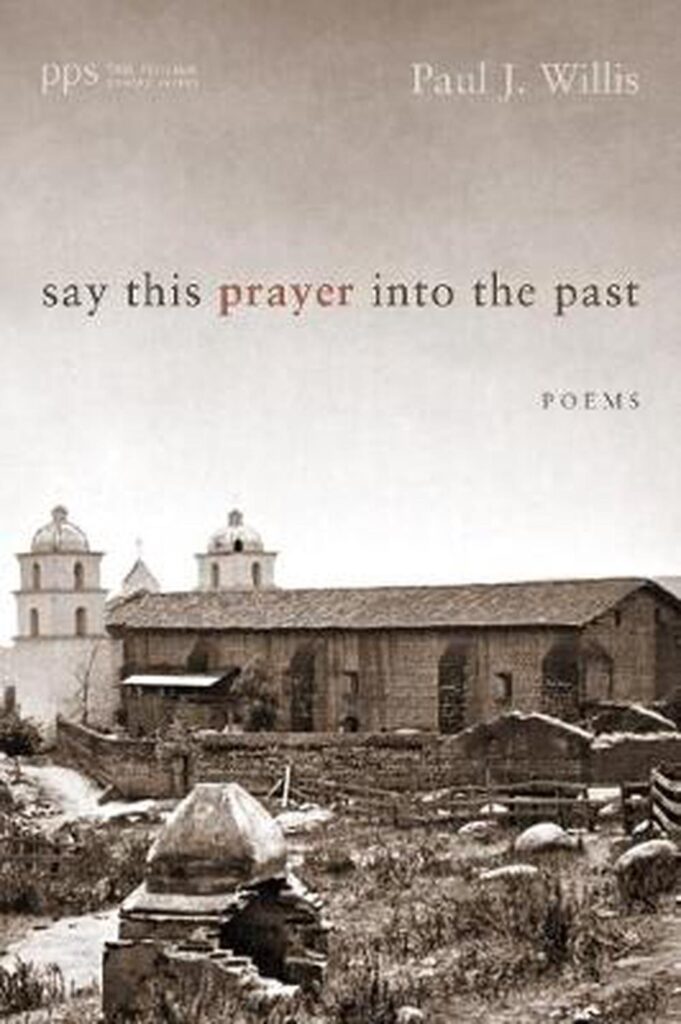
(Eugene, Oregon: Cascade Books, 2014), 100 pages.
This is a delightful collection of poetry from Willis, an English professor at Westmont College in Santa Barbara, California. I purchased the book from the Calvin University bookstore when I was there in early October. I had met the author though Calvin’s “Festival of Faith and Writing” workshops. Once, when I lived in Michigan, I encouraged him to stay a few days afterwards to do a poetry reading at Pierce Cedar Creek Nature Center south of Hastings, Michigan. It was early April 2012. On the morning of the reading, I took Willis on a hike on the trails around the property. That evening he read a poem he’d worked out while hiking that morning titled, “Skunk Cabbage.” An edited version of that poem is in this collection.
Nature plays a prominent role in Willis’ poems. Many of these poems he locates in various places in the Sierra Nevada Mountains and Pacific Northwest. Faith and scripture references also abound in these poems, as well as the theme of fire. This collection was compiled after the author lost his home to the 2008 Tea Fire that devastated areas around Santa Barbara. I recommend this collection of poetry.
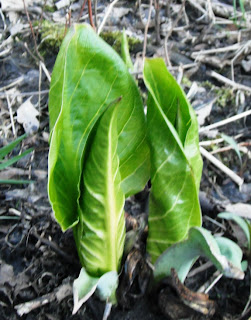
Brian Doyle, One Long River of Song
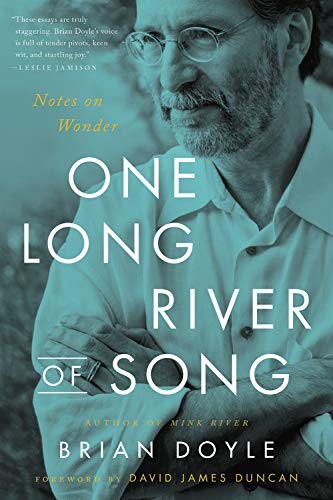
(New York: Little Brown, 2019) 251 pages.
This is a delightful collection of essays by the late Brian Doyle. I heard so much about him at the HopeWord Writer’s Conference this past spring and this is my first of his books to read. One Long River of Song is a book to be savored and read slowly, over time. This book spent a couple of months on my nightstand and whenever I didn’t have anything else to read, I’d read from one to a half-dozen essays before bed. Some made me tear up, others brought laughter.
All these essays provide the reader something to ponder. Each essay stands on its own. Doyle handles diverse subjects, from how he learned humility to how to write the “perfect nature essay.” There is an essay on the school shooting, a somewhat fictional account of William Blakes trial, on otters and wolverines and the human heart (that maintains a 4/4 beat). Doyle, who was Roman Catholic, explores the church and the meaning of faith. As the essays come toward the end, they tend to be more and more about death, but even here there is wonder.
This collection was published by Doyle’s wife after his death in 2017. I recommend it!
Carrot Quinn, The Sunset Route: Freight Trains, Forgiveness, and Freedom of the Rails in the American West
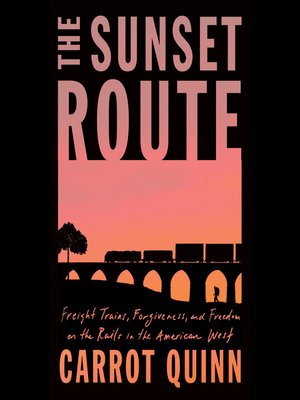
(2021, Audible Books), 9 hours and 27 minutes.
Someone had suggested that I read Quinn’s book, Thru-Hiking Will Break Your Heart. In looking up that title, I realized she’d written another book about riding the rails. I have done long distant hiking, but have never hopped a train. However, the lure has always been there, so I decided to start with this book. While there is a lot about catching trains and how to hide from the railroad police (who are not like the railroad bulls of the 1930s), this book is Quinn’s “coming-of-age” story. While I didn’t want to stop listening, it was hard to listen to much of Quinn’s story. Yet, she needs to be heard as she is not the only one to grow up in such difficult circumstances.
I found this book to be a cross between Jack Kerouac’s On the Road, and Chad Faries, Drive Me Out of My Mind which I read in early 2020. Like Faries’ experiences, I found myself angry at Quinn’s childhood. No child should have to live in such a manner. While such an upbringing has helped make her who she is, I worry about other kids who didn’t make it.
Review of The Sunset Route
Quinn flips back and forth, from her adventures on a train to growing up with a mentally ill mother in Alaska. Her mother believes she is the Virgin Mary and often has weird visions. At times, unable to hold things together, her mother would forget to file for welfare and Quinn and her brother along with their mother would be homeless. It was a difficult as she learns at an early age to forage food from dumpsters. In her teens, she is taken from her mother and sent to her grandparents in Colorado. Then she runs away. She becomes a part of a drug and alcohol-free anarchist community and learns about riding rails. As she rides the rails, she reads Annie Dillard’s Pilgrim at Tinker Creek, a book I read when I hiked the Appalachian Trail.
It appears to me that throughout her life, Quinn keeps trying to find love and failing. Her mentally ill mother can’t love her. When her mother is sick, she says terrible things to her children. Her estranged father has abandoned the family and while he brought her a plane ticket on one occasion, isn’t able to show love to someone he abandoned as an infant. Her grandparents don’t know what to do with two teenagers when all the rest of children have grown. When her brother becomes an addict, there is another rift from one she had been able to depend on. And then there are the relationships to others, mostly to other women but also to men. While Quinn doesn’t find love, there are a few bright moments in her life when someone helps her out.
At the end of the book (which has a big gap of the time when she hiked long distance trails) she seems to have come to peace with her situation. She and her brother have reconnected, as they both shared a terrible childhood. She even tries to find her mother, fearing that she might die in the cold in Anchorage.
Recommendation
While many will find this book difficult to read. But stories like these need to be heard because so many of these stories are not heard and are hidden from society.
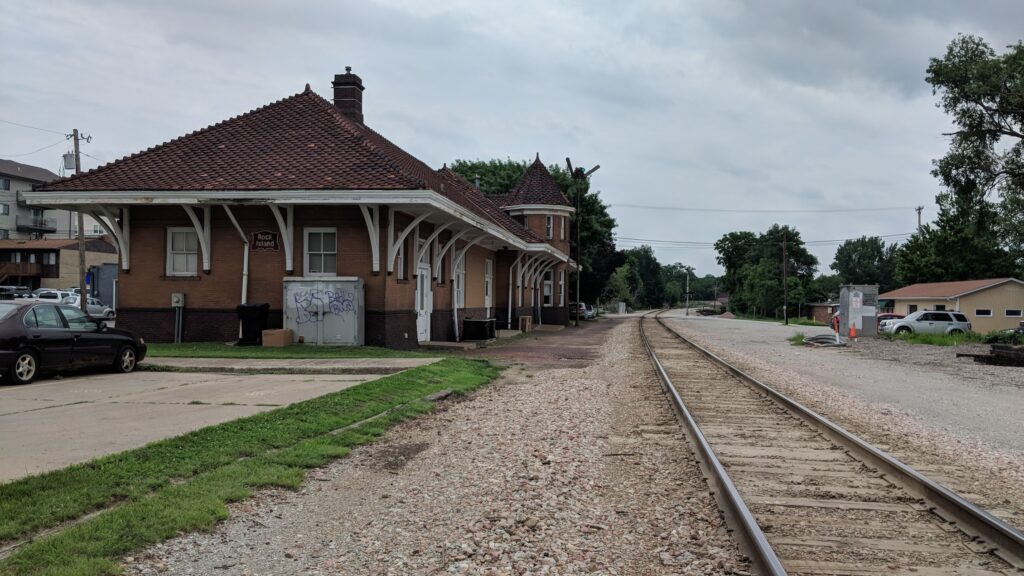

You always share interesting books reviews, Jeff. I would like to read “The Sunset Route.” There has been a lot of mental illness in my extended family background, and it would likely be insightful to read her coming of age story. Enjoy your weekend!
It’s both a good and hard book to read. I’d be interested in your thoughts on it.
I’d never heard of skunk cabbage before.
It grows in the northern regions of the East and midwest–the plant provides its own heat which allows it to melt snow when it begins growing at the end of winter
I’m intrigued by the essays. My sis and I are joining hands to pray for the country at 11:20 each day (virtually) and I’m struggling over what to say. I don’t like asking for help but in this case, I absolutely want to! Maybe a few essays will inspire me.
Thanks for the reviews and sharing, Jeff. The book that interests me the most is the Sunset Route one. I got a holiday break coming up and I need to do something else besides watch football.
Before you try to hop a freight, read up some so you will not end up on a car heading into a steel mill where they load hot steel–one of her mistakes!
I have that Doyle book waiting in my Kindle, so I’m inspired to try and get to it this next year. He wrote for Daily Guideposts (a devotional book I’ve used for several decades) and I loved his writing – always a little “off the wall”. I did read a novel he wrote and found it less appealing. I know I’ll like these if they’re essays. I was sad when he died rather unexpectedly.
I’ve made note of the Advent book.
I will be on the lookout for other Doyle books. I think you’ll like Rutledge’s “Advent”
The Doyle book sounds especially interesting to me. I like to have a book like that for quick reads in between other things.
His essays are short and he can write and make most anything interesting.